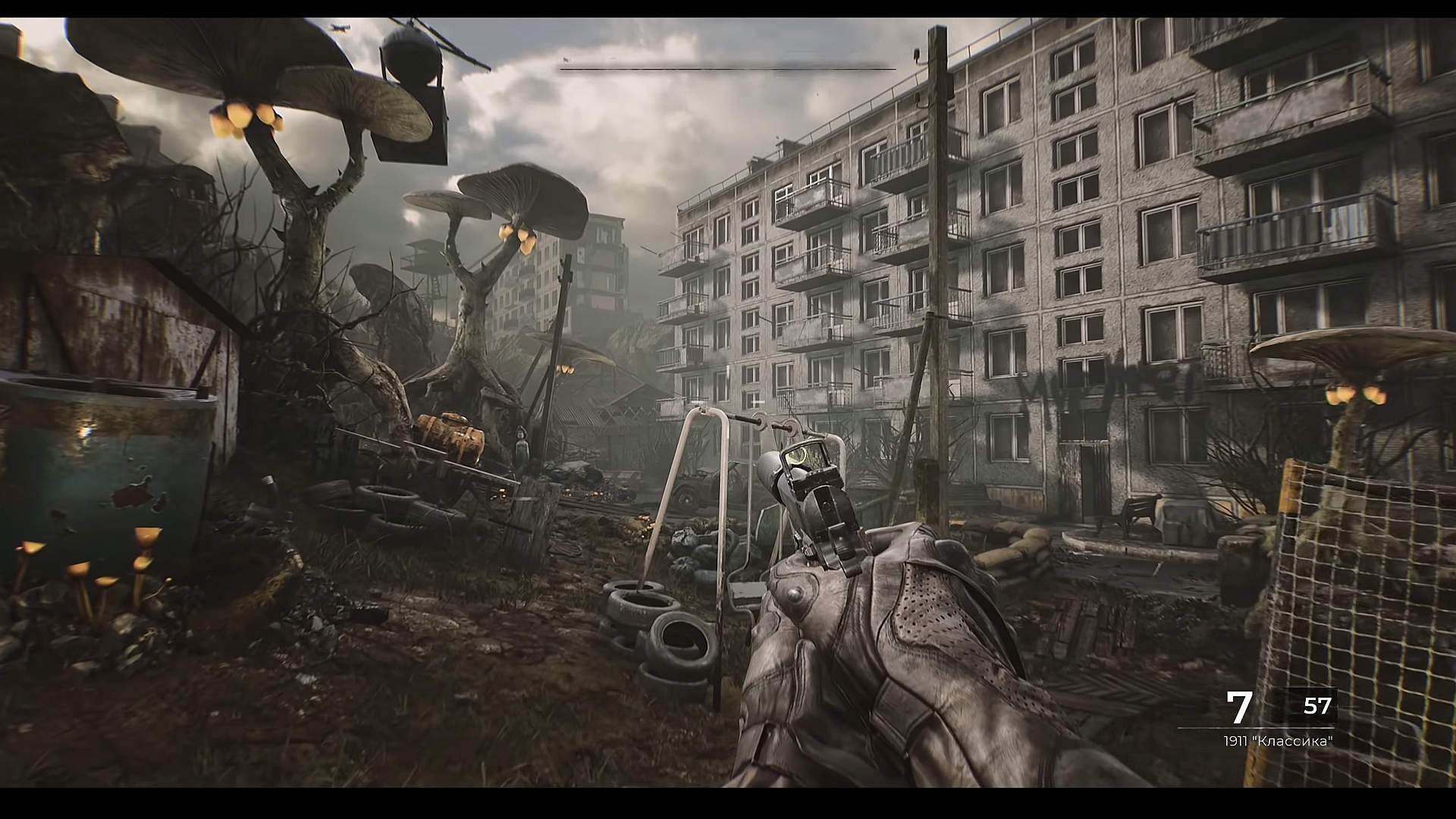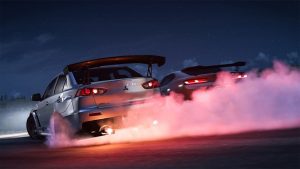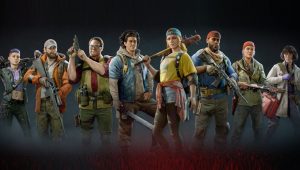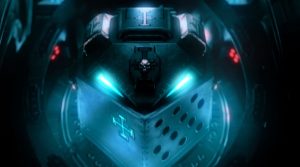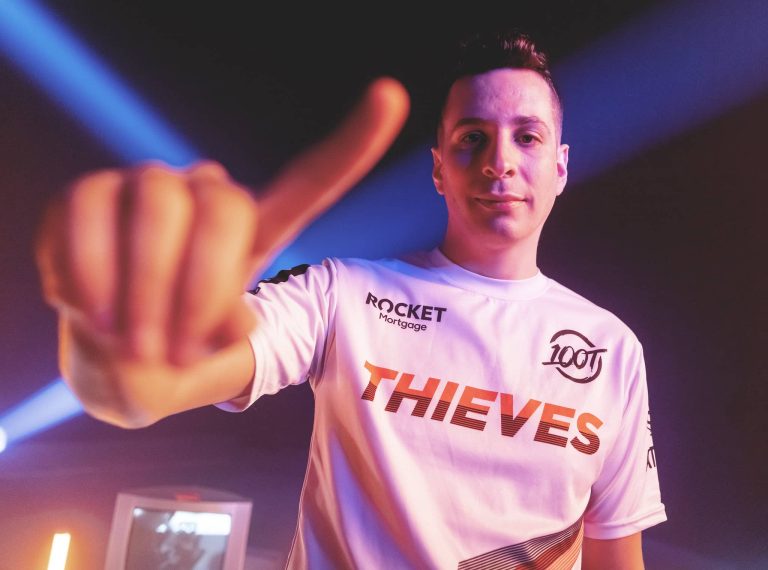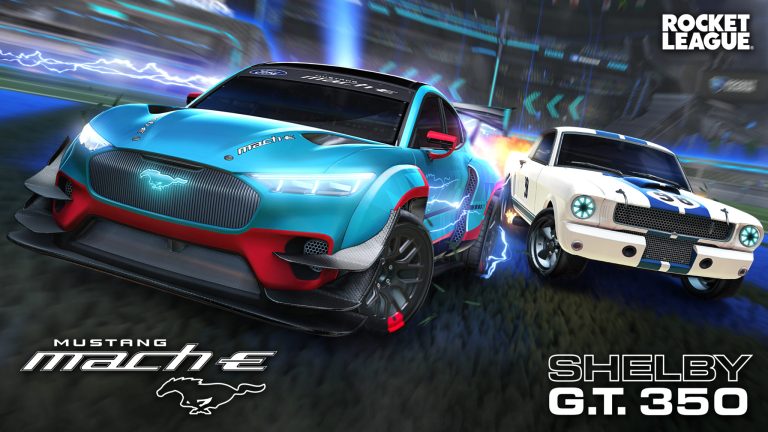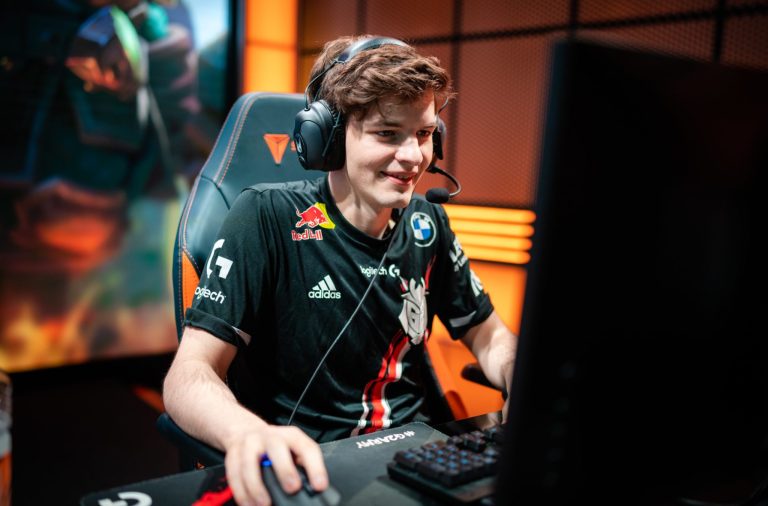Pioner is a forthcoming first-person shooter that, well, sticks out from the crowd. Until we first saw the game, it was in the form of a trailer with a menacing Russian voiceover, which I really missed when I rewatched it in English. GFA Games has now displayed more of Pioner exclusively at today’s PC Gaming Show, as well as spoken with us about the game’s development, features, and inspirations.
The game was mentioned a few years ago, but “16 months ago, we collected the present lineup of creators and started everything from scratch,” according to GFA Games’ Aleksandr Nikitin. “The main motivation is to create an emotionally engaging adventure and unite a diverse range of players into a single community: Pioner is conceived as a unique game containing a singleplayer campaign, and emotional cooperative game, and a survival in the struggle between players against each other and the spawn of the island.”
This is not an unusual structure, but it is somewhat ambitious for a startup company, even though GFA was founded by a small group of veterans: three ways to play a game like this are either inspired, or nuts. At the very least, it will be interesting to witness how the three interact.
Pioner’s island environment is a no-go zone filled by both other players and oddities, and it’s a seamless experience. “In the universe of Pioner, you must travel the map rather than the ‘Lobby’ like in TESO or STALKER. There are some goals in the world that you can attain on your own, but I don’t believe that an average individual can defeat the most dangerous bosses on their own.”
The architecture of this environment feeds into Pioner’s blend of singleplayer campaign and more MMO-like open world elements: encounters are planned for the former, while Pioner’s many dynamic mechanics provide the latter’s difficulty. “Of course, most encounters in the storey campaign and objectives will be pre-written. However, the open world has its own set of laws, and individual creatures and humans will respond to changes in weather, time of day, and multiplayer components.”
This video goes through the game’s combat in further detail:
The game’s brief promises raids, friends, monsters, a home stronghold that must be guarded against marauders, and the opportunity to customise and alter your character’s equipment. I inquired about the main concepts behind how the latter operates.
“We have different sorts of armor and weaponry, depending on whether you’re fighting humans, anomalies, or monsters,” Nikitin explains. “The weight of the armor set influences movement speed. There are also other gadgets that may be worn on your wrists, such as watches, PDAs, and dosimeters. Each gadget has its own set of operations and capabilities.”
Is there as much emphasis on melee fighting as there is on guns? “Let’s just say that dealing with individual foes is simpler in melee combat. But, certainly, this part is still in the works.”
The second part of Pioner’s introduction video had the greatest intrigue for me: a closer look at this strange, slightly alien terrain, as well as the world’s more science-fiction components. The beautifully constructed old Soviet style is particularly noteworthy.
“Imagine supposing technological advancement halted at the late USSR stage and developed autonomously,” Nikitin argues. “For the time being, you can only use what is left and what you can make yourself.”
Everything about Pioner reflects the Russian approach to science fiction, and the most apparent source of inspiration, like with the STALKER games, appears to be Arkady and Boris Strugatsky’s Roadside Picnic, a defining and unforgettable piece of science fiction. I inquired of Nikitin about the book’s impact on the game.
“The Strugatsky brothers’ work is unquestionably a literary classic! This location is quite near and familiar in the CIS, but we will strive to improve it while retaining authenticity. For example, in order to provide gamers with a novel experience, we went away from basic anomalies and creature categories.”
Before the final release of Pioner, we’ll conduct a beta test and report back from the zone ourselves, comrades.

